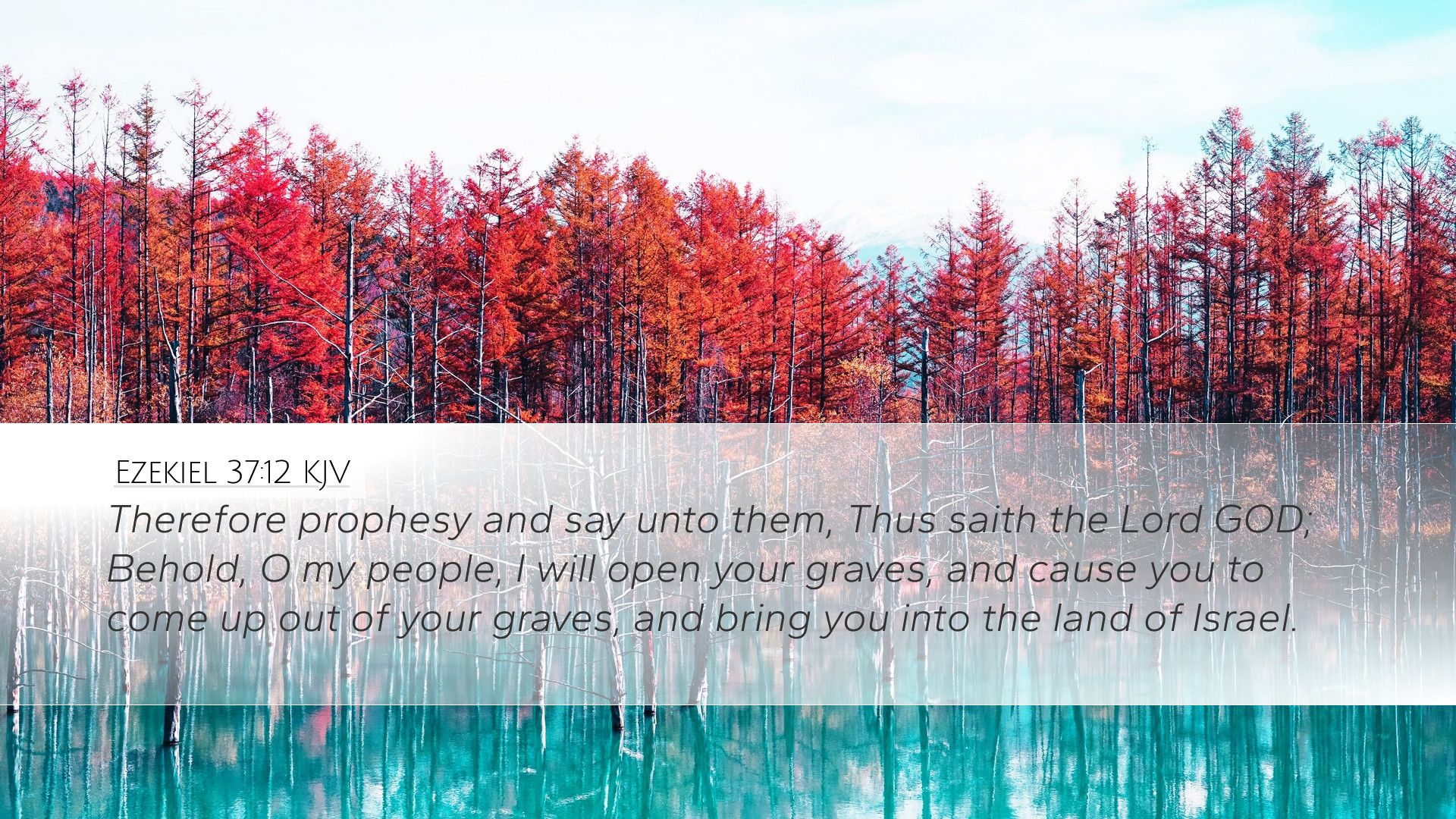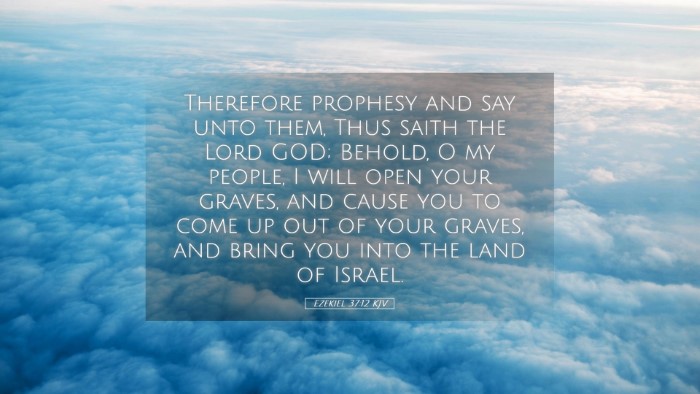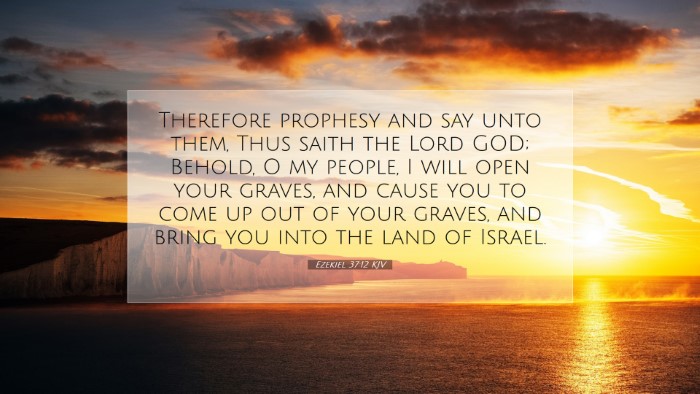Ezekiel 37:12 Commentary
Verse Context: Ezekiel 37:12 states, "Therefore prophesy and say unto them, Thus saith the Lord God; Behold, O my people, I will open your graves, and cause you to come up out of your graves, and bring you into the land of Israel."
Interpretative Overview
This verse is situated within the context of the famous vision of the valley of dry bones (Ezekiel 37:1-14), where God reveals to Ezekiel a powerful message of restoration and hope for Israel. It symbolizes the resurrection not only of the physical body but also of the community and hope of a nation, signifying God's intention to revive His people.
Thematic Elements
- Divine Restoration: The phrase "I will open your graves" indicates God's sovereign intent to restore life and hope to His people. This serves as a metaphor for the spiritual revival being promised.
- The Role of Prophecy: God's command to Ezekiel to prophesy underscores the pivotal role of prophetic ministry in bringing God's words of hope to His people.
- Identity of God's People: The term "my people" serves to remind Israel of their covenant relationship with God, stressing the personal nature of God's covenant.
- The Promised Land: Bringing them into the land of Israel symbolizes re-establishment, indicating that restoration is not merely spiritual but also physical and communal.
Commentary Insights
Matthew Henry: Henry emphasizes that God is the author of resurrection, reminding the reader of the tremendous power of God to bring hope where there seems to be none. He notes that the resurrection of Israel signifies not just a physical revival but a return to spiritual fidelity and covenantal faithfulness. According to Henry, this prophecy assures God’s people that their despair will not have the final word, reinforcing the notion of God’s unwavering love and commitment to His promises.
Albert Barnes: Barnes focuses on the metaphorical dimension of the text. He interprets "graves" as representative of spiritual death - the condition of a people hopeless and lost without God. The raising of the Israelites from their graves parallels with Christ's resurrection, thereby pointing to the ultimate hope of life after death. For Barnes, it is essential to view this passage within the larger theme of redemption, utilizing it as encouragement for contemporary believers to find hope amidst their spiritual barrenness.
Adam Clarke: Clarke discusses the historical context surrounding Israel's exile and the psychological effects of being displaced. He acknowledges this prophecy as an assurance that despite their current suffering, God is merciful and will restore them. Clarke elaborates on the transformative implications of going "into the land of Israel" as not merely a geographical return but a restoration of divine favor, cultural identity, and spiritual vitality.
Theological Implications
This scripture provides profound theological insights that encourage reflection on themes of hope and resurrection.
- Hope in Despair: Believers are reminded that God is capable of reviving the dead areas in their lives, no matter how hopeless the situation seems.
- Prophetic Unfolding: The passage underscores the importance of prophecy in the life of the church and community, calling for active participation in God’s restorative work.
- Covenantal Assurance: The reaffirmation of Israel as 'My people' invites a dialogue on the significance of covenant theology, backed by God’s promise of restoration.
Contemporary Application
Pastors, students, and theologians can draw important applications from this text, recognizing the relevance of God’s promises today. The acknowledgment of spiritual graves within communities calls for pastoral care that addresses both individual and communal faith journeys.
- Contextual Ministry: Engage in ministry that seeks to bring hope and healing to those in spiritual distress.
- Encouraging Restoration: Foster conversations around restoration and revival, emphasizing that God can resurrect hopes and dreams.
- Covenant Reminders: Teach congregations about their identity as God’s people, framing their struggles in the context of God’s enduring covenant relationship.
Conclusion
Ezekiel 37:12 encapsulates a transformative vision of hope and resurrection for God’s people. This commentary integrates insights from classical biblical scholars, emphasizing the layered meanings behind the text. As modern readers, one should embrace this prophecy as a source of encouragement, engaging with God’s call to renew our lives, our communities, and ultimately, our relationship with Him.


